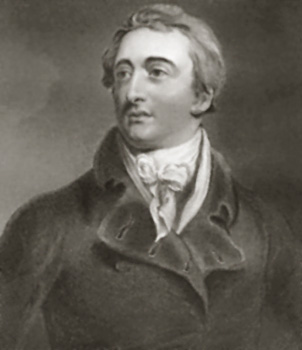 Lord William Bentinck was responsible for the abolition of Sati and Thugee. Both of these customs involved death. The only difference was that in case of Sati the death took place voluntarily and in the case of Thugee it was inflicted by the Thugs on others. The custom of Sati involved the death of a widowed woman because as it was in favour of the vested interests of many of the family members and that is the reason as to why the custom continued for long inspite of protests from time to time.
Lord William Bentinck was responsible for the abolition of Sati and Thugee. Both of these customs involved death. The only difference was that in case of Sati the death took place voluntarily and in the case of Thugee it was inflicted by the Thugs on others. The custom of Sati involved the death of a widowed woman because as it was in favour of the vested interests of many of the family members and that is the reason as to why the custom continued for long inspite of protests from time to time.
In 1823, the Court of Directors made an enquiry into the custom and hinted at the possibility of prohibiting it by law if there was no danger of great opposition. Lord Amherst invited public opinion on this question and there was found to be no unanimity. Bentinck came to the conclusion that there was no possibility of any serious trouble if Sati was made a penal office. He was helped in this task by Raja Ram Mohan Roy. By regulation of December 1829, Bentinck declared the practise of Sati as illegal and punishable as "culpable homicide". There was no strong opposition from the orthodox sections of society but Bentinck had the courage of a reformer and he carried out the reform. There was agitation for some time but the same died out after the passage of time.
As regards to the Thugs, there were bands of hereditary robbers and murderers who carried out their crimes in a uniform manner. The Thugs operated in many parts of India and enjoyed the protection of petty chieftains and Zamindars at many places. The Thugs worked in gangs and confined their attention to travellers.
The English Company had done certain things in order to curb the Thugs but there was not much progress. In 1829, the Agent of the Governor General in Narbada territories was instructed to take action against all the Thugs where they might be. Captain Sleeman was appointed as the Assistant to the Agent. The officials of the Company throughout India were directed to send him not only reports of all cases of Thugee but also all facts which might help to unearth the secrets of Thugee.
Two important measures which were introduced by the English Company were namely an Act was passed by which the mere fact of belonging to a gang of Thugs was made an offence punishable with imprisonment for life. It was often possible to prove association where evidence of a specific offence was not forthcoming. Secondly a Thug against whom evidence was clear was pardoned after making a full confession. That in turn helped the authorities to know more about the other Thugs and their whereabouts. The net result of such actions on the part of the Thugs was that a large number of Thugs were arrested and were either put to death or transported for life and the rest were confined to a reformatory at Jabalpur.
According to the Hindu Law, if a Hindu became a convert to Christianity, he was not entitled to share in the property of his family but the new law framed by Lord Bentinck said that even if a Hindu was converted to Christianity he was entitled to a share in the paternal property.
The irrigation schemes started in the time of Lord Minto were taken up in the time of Bentinck. Canals were dug for distribution of water in the North-West Province. Roads were improved. The Grand Trunk Road from Calcutta (presently Kolkata) was built and from Bombay (presently Mumbai) to Agra was started.



















